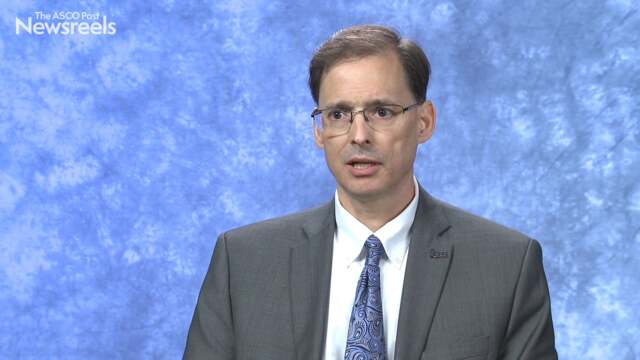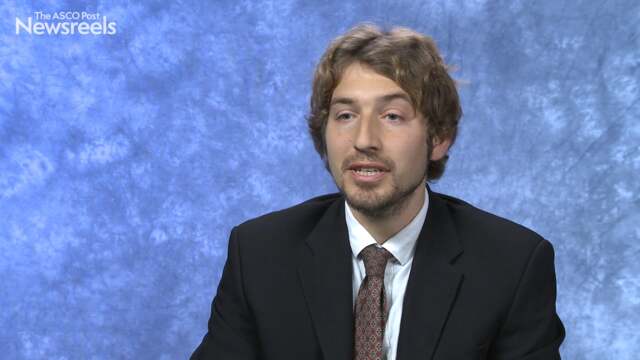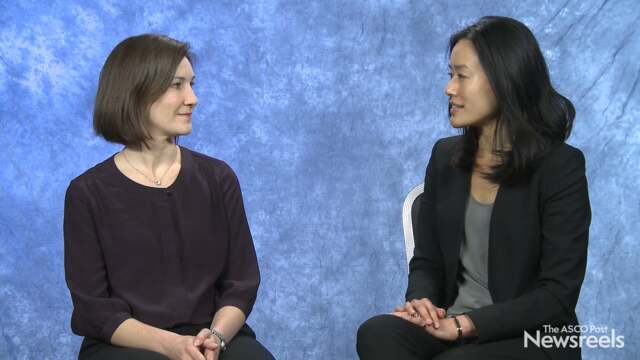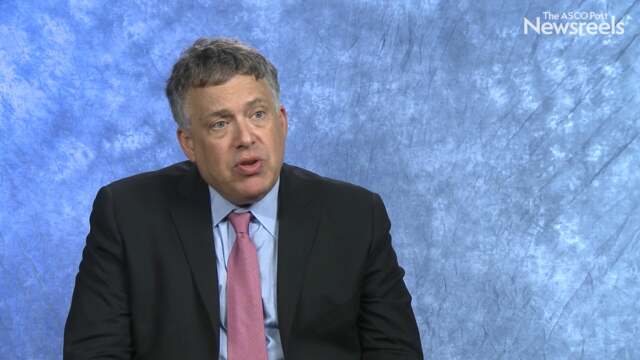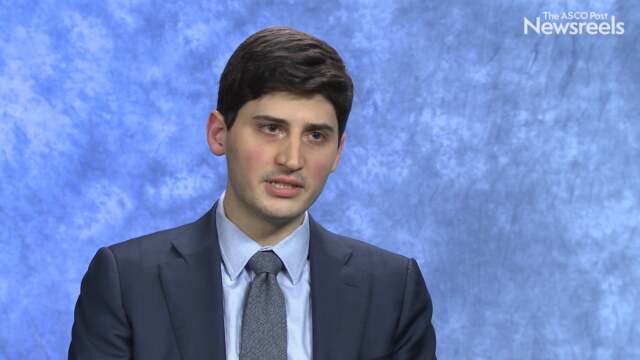Linda Mileshkin, MBBS, on Solid Tumors: Early Treatment Study Results
2018 ASCO-SITC Clinical Immuno-Oncology Symposium
Linda Mileshkin, MBBS, of the Peter MacCallum Cancer Centre, discusses phase Ib trial findings on the anti–PD-1 monoclonal antibody BGB-A317 in combination with the PARP inhibitor BGB-290 in advanced solid tumors.
James L. Gulley, MD, PhD, of the National Cancer Institute, discusses combined treatment approaches showing early evidence of clinical activity: agents such as vaccines or PARP inhibitors that can initiate an immune response, paired with agents such as checkpoint inhibitors that can facilitate the activity of tumor-directed immune cells.
Aaron Goodman, MD, of the University of California, San Diego School of Medicine, discusses an analysis of more than 100,000 patients with cancer for CD274 (PD-L1) amplification and the implications for treatment with immune checkpoint blockade (Abstract 47).
Ann W. Silk, MD, of the Rutgers Cancer Institute of New Jersey, and Katy K. Tsai, MD, of the University of California, San Francisco, who are Co-Chairs of the Clinical Immuno-Oncology Symposium, discuss highlights of the meeting and progress in the field.
Roy S. Herbst, MD, PhD, of the Yale School of Medicine, summarizes a session that included discussion of the mechanisms of immunotherapies, biomarkers for activity of these agents, overcoming resistance, and using treatment combinations.
Jeffrey M. Lemons, MD, of the University of Chicago, discusses early safety and efficacy findings from a small study on pembrolizumab and multiorgan-site ablative stereotactic body radiotherapy in patients with advanced solid tumors (Abstract 20).
